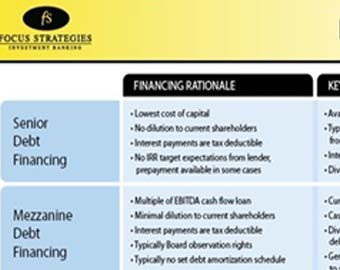Private placement (or non-public offering) is a funding round of securities which are sold not through a public offering, but rather through a private offering, mostly to a small number of chosen investors.[1] "Private placement" usually refers to non-pub
full story >>Private Equity, or PE, firms invest customers' capital in companies. The companies may be publicly traded or privately held. The companies in which the private equity company invests are called portfolio companies. While most private equity investments ar
Continue reading >>When engaging trades on the stock market, certain eligible clients can receive offers to participate in private placement platforms. PPPs allow for special stock trading conducted with certain assets.
Continue reading >>Institutional investors are organizations which pool large sums of money and invest those sums in securities, real property and other investment assets.
Continue reading >>Many financial experts recommend holding 10%-30% of your portfolio in alternative investments. Private equity investments are a type of alternative investment because private equity funds do not invest in traditional public stocks or bonds.
Continue reading >>A public offering of securities can reach an enormous number of potential investors, but it might also require extensive public disclosure of company information.
Continue reading >>



